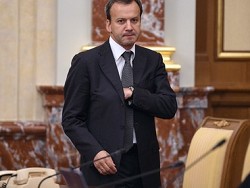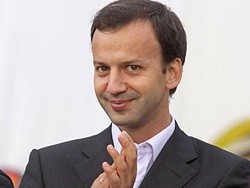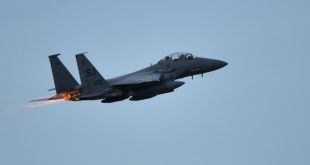
Russia is ready to sell two Japanese companies, controlling stakes in major oil and gas projects. This was stated in an interview with Japanese newspaper Nikkei, Russian Deputy Prime Minister Arkady Dvorkovich.
As explained Dvorkovich, the proposal refers to “investors, have strategic development plans”. He noted that, despite the sanctions, Russia has been “very constructive dialogue with the Japanese companies”, creating “good conditions for political dialogue”.
Deputy Prime Minister also admitted the involvement of Japanese companies in the economic development of the Kuril Islands.
Speaking about the possible visit of Russian President Vladimir Putin to Japan, Dvorkovich stressed that it is necessary to strengthen cooperation in the economic sphere and to prepare “a substantial package of agreements”.
On 20 February the Prime Minister of Japan Shinzo Abe expressed confidence in Russian President Vladimir Putin in the settlement of the dispute about the Kuril Islands. “The territorial problem is not a simple (…). For both sides a solution to this problem is accompanied by risk. However, President Putin was able to develop a trusting relationship. I trust him completely. I think Putin also knows that the solution of this problem will positively affect the development of Russia”, — said Abe. He noted that he would like to visit Russia, and supported Putin’s visit to Tokyo and supported the idea of signing a peace Treaty between Russia and Japan.
December 10, Nikkei Asian Review reported that in 2016 could take place an informal meeting between Abe and Putin. The topic of conversation, which, according to available information, will be held in Khabarovsk or Vladivostok, will become the territorial issue. Official comments of the Japanese or Russian side on this occasion was not.
The previous meeting between Putin and Abe took place on the sidelines of the session of the UN General Assembly in late September 2015. On its results the policy announced the intention to advance the talks on the conclusion of a peace agreement.
Moscow and Tokyo in 1956 signed a Declaration on ending the war, which may enter into force only after the conclusion of the peace Treaty. The main obstacle to the signing of the Memorandum is unresolved dispute over the Kuril Islands. Japan claims the four Islands, referring to the Treaty of 1855. Russia insists that these territories became part of the USSR at the end of the Second world war.
In addition, the development of bilateral relations hampered by sanctions that Tokyo imposed in stages against Moscow after the annexation of Crimea and situation in southeastern Ukraine intensified in the spring of 2014. In response, Moscow has imposed visa sanctions on a number of Japanese citizens.







